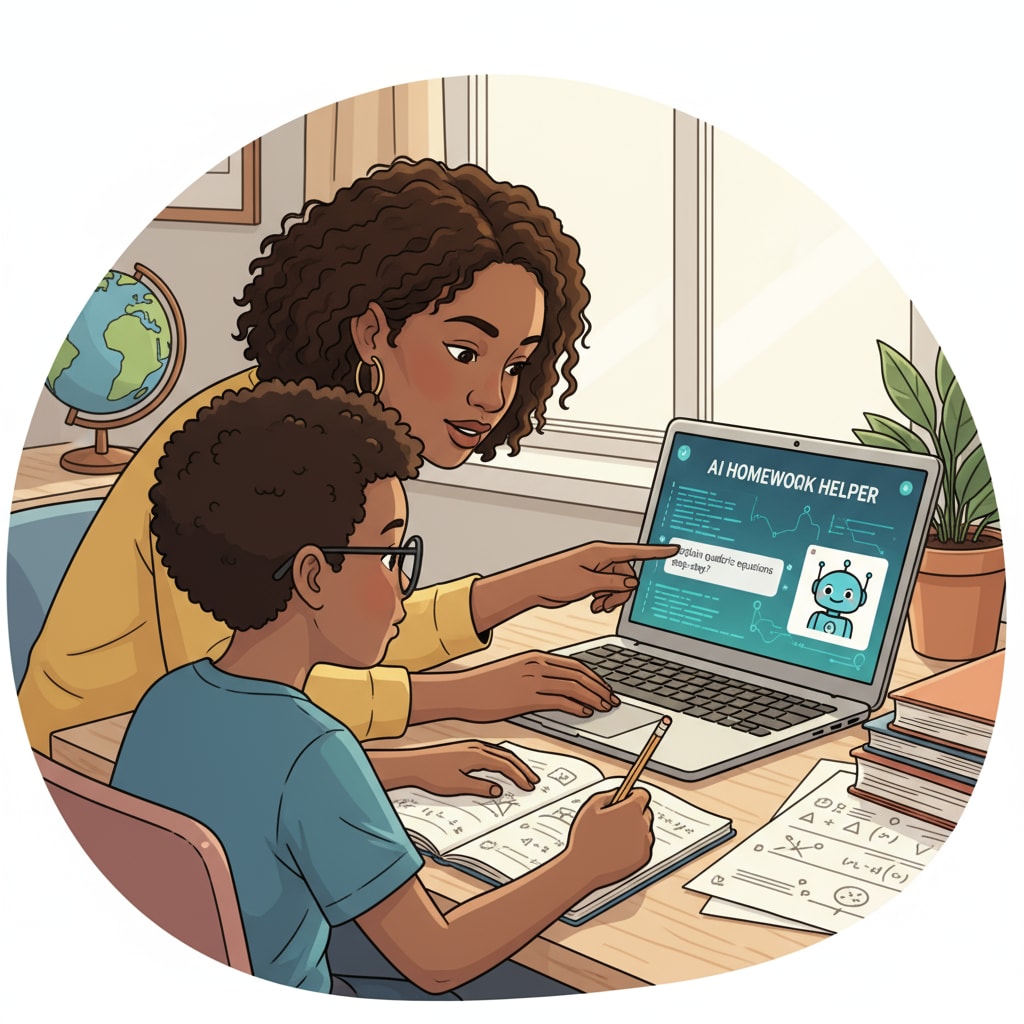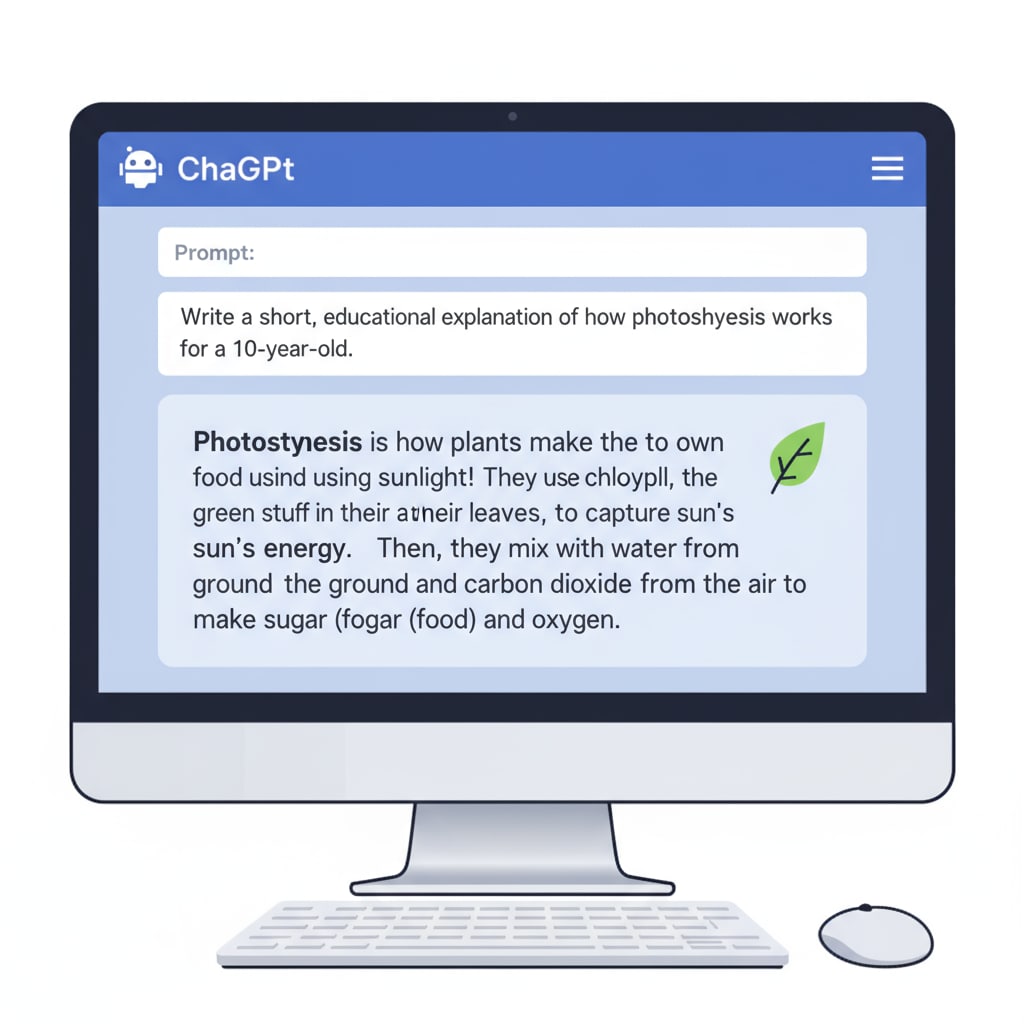The rise of AI has brought about a new phenomenon in the world of education – parents are increasingly using tools like ChatGPT to assist their children with homework, raising concerns about AI cheating, parental involvement, writing anxiety, and student writing abilities.

This trend has ignited a fierce debate within the education community.
The Emergence of AI in Homework Assistance
With the development of AI, platforms such as ChatGPT have become easily accessible. Parents, in an attempt to help their children succeed academically, are turning to these tools. For example, a parent might input a writing assignment prompt into ChatGPT and use the generated content to help their child complete an essay. This seemingly convenient solution, however, has far-reaching implications. According to Artificial intelligence in education on Wikipedia, the use of AI in education is a growing area of research, but when misused, it can disrupt the learning process.

The Concerns of AI Cheating
The most obvious concern is the issue of AI cheating. When students rely on AI to complete their assignments, they are not truly demonstrating their own knowledge and skills. This not only undermines the integrity of the educational system but also fails to prepare students for real-world challenges. As stated in AI in Education on Educause, educational institutions are struggling to develop strategies to detect and prevent AI cheating.
Moreover, this form of cheating can create an unfair advantage for some students, skewing the assessment results and devaluing the hard work of honest students. In addition, it hinders the development of critical thinking and problem-solving abilities that are essential for academic and professional success.
Readability guidance: Here we see a list of concerns regarding AI cheating, presented in a clear and concise manner. Each point is a separate sentence, with transition words like’moreover’ and ‘in addition’ used to connect ideas.
Another aspect is the impact on student writing abilities. When students rely on AI-generated content, they miss out on the opportunity to practice and improve their writing skills. Writing is not only about putting words on paper but also about developing creativity, organization, and self-expression. By using AI, students may become dependent on external assistance and struggle to express themselves independently in the future.
Furthermore, this trend can exacerbate writing anxiety among students. Instead of learning to overcome the challenges of writing through practice, they may feel pressured to use AI to meet academic requirements. This can lead to a vicious cycle where writing anxiety increases, and students become less confident in their own abilities.
Readability guidance: Short paragraphs are used to clearly present different aspects of the impact on student writing abilities. Transition words like ‘furthermore’ help to move from one point to the next.
The Role of Parental Involvement
Parental involvement in a child’s education is generally considered beneficial. However, when it comes to using AI to assist with homework, the situation becomes more complex. Parents may be motivated by a desire to see their children succeed, but in doing so, they may be inadvertently robbing them of the opportunity to learn and grow independently.
Some parents may not fully understand the long-term consequences of using AI in this way. They might view it as a quick fix to help their children get better grades, without considering the impact on their development of essential skills. In this regard, it is important for parents to reevaluate their approach to helping their children with homework and find a balance between support and allowing them to learn on their own.
Readability guidance: The paragraphs under this heading discuss the role of parental involvement, with each paragraph presenting a different perspective. Transition words help to show the relationship between the ideas.
Rethinking Learning in the AI Era
In the face of this new challenge, educators, parents, and students need to redefine the nature of learning. Instead of fearing AI, we should explore how to integrate it into the educational process in a positive way. For example, AI can be used as a tool for learning, such as providing instant feedback, suggesting improvement areas, or offering additional learning resources.
Educators can design assignments that encourage students to use AI responsibly, guiding them to critically evaluate the AI-generated content and use it as a starting point for their own learning. This way, students can develop the skills to work with technology while still honing their own thinking and writing abilities.
Parents, on the other hand, can play a role in teaching their children the proper use of AI. By setting boundaries and emphasizing the importance of honesty and hard work, they can help their children navigate the digital landscape in a healthy way.
Readability guidance: This section offers solutions and a forward-looking perspective. Short paragraphs and a list-like structure are used to present different suggestions for educators and parents.
In conclusion, the use of AI by parents to assist children with homework has brought to light important issues related to AI cheating, parental involvement, writing anxiety, and student writing abilities. It is crucial that all stakeholders work together to find a way to embrace technology while maintaining the integrity of the educational system and fostering the development of students’ true capabilities.


